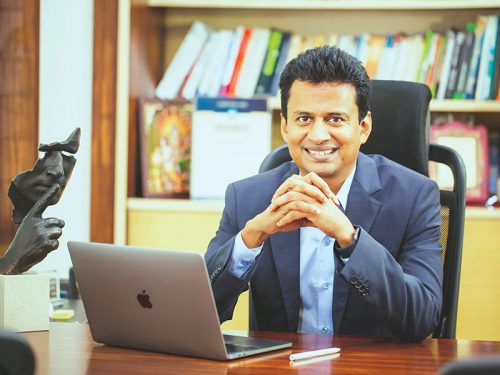No products in the cart.
Modi Government Education Report Card: Praveen Raju
In this General Election-eve story, we assess the track record of the Modi government — the first non-Congress government to have completed ten years in office in independent India — in early childhood, primary-secondary, skilling and higher education writes Summiya Yasmeen

Prime Minister Narendra Modi: eventful decade for Indian education
 Exciting & promising beginning
Exciting & promising beginning
Praveen Raju is founder-director of the CBSE (Delhi) and Cambridge International (UK)-affiliated Suchitra Academy, Hyderabad (estb.2011), which has over 2,100 children and 230 teachers on its muster rolls.
Education track record of the BJP government. I am inclined to take a favourable view of the past decade because of several pioneering education initiatives. NEP 2020 stands out as a groundbreaking education reform which could revolutionise Indian education with the introduction of new pedagogies that foster critical thinking and creativity among students. But more exciting is the beginning of the deregulation process with the government permitting foreign universities to set up owned campuses in India. I discern a promising future filled with dynamic and diverse education models.
Achievements and failures. The initiative to deregulate the entry of foreign universities into India and permit establishment of for-profit medical colleges are landmark reforms. This will inject necessary capital and diversity into our education system. Similarly, the K-12 education sector urgently requires deregulation and funds infusion. The initial steps are promising, yet achieving the grand vision of India as an education superpower requires sustained and comprehensive effort.
Top 3 education priorities of the new government.
- Deregulate and liberalise school education.
- Invest in digital infrastructure to harness new technologies such as AI in education.
- Motivate the country’s 29 state governments to implement NEP 2020 on a priority basis.
















Add comment